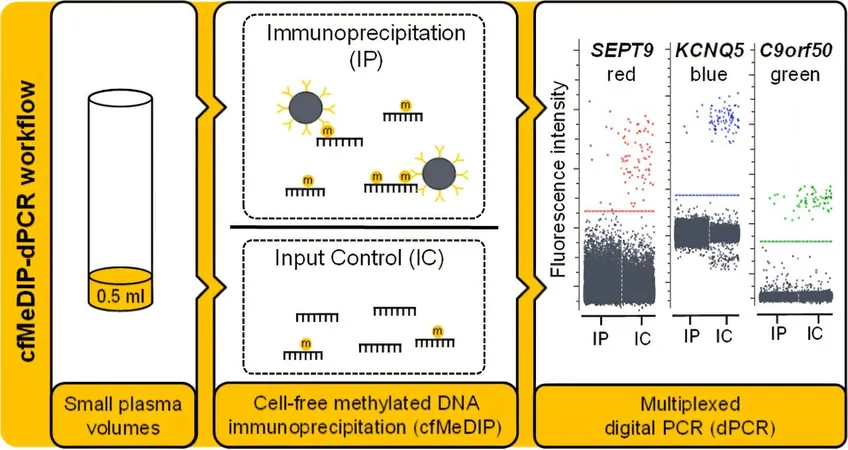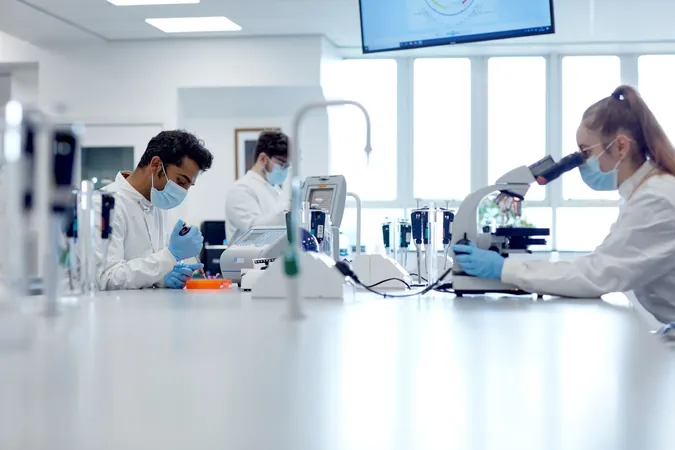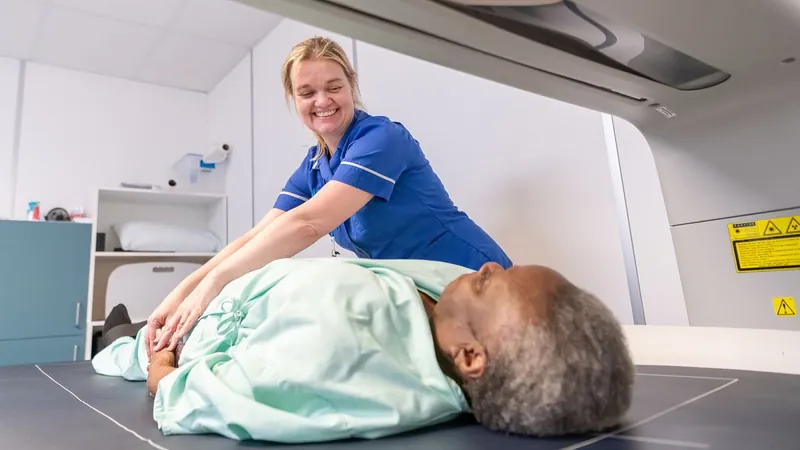
Revolutionary Blood Test Could Transform Early Detection of Colorectal Cancer
2025-07-02
Author: Yu
Colorectal cancer cases among those under 50 are skyrocketing globally, particularly in wealthier nations. Increasingly attributed to factors like Western diets, obesity, sedentary lifestyles, and early antibiotic use, this alarming trend underscores the urgent need for early detection.
Detecting colorectal cancer (CRC) at an early stage significantly boosts recovery odds, which is why researchers at Hahn-Schickard, in collaboration with the University Hospital Schleswig-Holstein and the German Cancer Research Center, are pioneering groundbreaking methods to identify cancer through blood samples.
A Breakthrough Method Revealed!
A cutting-edge approach to CRC early detection has just been unveiled in the journal Analytical Chemistry by Dr. Peter Jülg’s team, who specialize in liquid biopsy.
The technique detailed in "Coupling Immunoprecipitation with Multiplexed Digital PCR for Cell-Free DNA Methylation Detection in Small Plasma Volumes of Early-Onset Colorectal Cancer" introduces a revolutionary blood test that ingeniously combines two established methods: immunoprecipitation and multiplex digital PCR.
Promising Results from Pilot Study!
Research associate and lead author Truong-Tu Truong highlights, "Recent years have seen the discovery of promising markers for colorectal cancer in blood, setting a solid foundation for our advances."
Despite this progress, the practical use of such markers in clinical settings is still gaining traction. By merging existing cancer markers with this innovative method, the team is making significant strides toward clinical applicability, notably by drastically reducing the blood volume needed for testing.
Game-Changing Blood Volume Requirements!
This new approach overcomes previous challenges with gentle, non-destructive sample preparation while maintaining impressive diagnostic performance. A pilot study with 32 CRC patients and 29 controls revealed a sensitivity of 85% and specificity of 90%—all from just 500 µL of blood plasma, which is a mere one-fifth of a teaspoon.
Looking Ahead: More Research Needed!
While further studies are essential before this blood test can be adopted in routine diagnostics, young scientist Judith Sum is actively enhancing the procedure and aims to incorporate additional markers for even greater diagnostic precision.
In tandem with their research efforts, the team is determined to raise awareness about the rising colorectal cancer risk among younger populations, urging them to adopt a proactive approach to their health.
This innovative blood test could revolutionize how we detect colorectal cancer early, providing hope for better outcomes in an increasingly at-risk demographic.



 Brasil (PT)
Brasil (PT)
 Canada (EN)
Canada (EN)
 Chile (ES)
Chile (ES)
 Česko (CS)
Česko (CS)
 대한민국 (KO)
대한민국 (KO)
 España (ES)
España (ES)
 France (FR)
France (FR)
 Hong Kong (EN)
Hong Kong (EN)
 Italia (IT)
Italia (IT)
 日本 (JA)
日本 (JA)
 Magyarország (HU)
Magyarország (HU)
 Norge (NO)
Norge (NO)
 Polska (PL)
Polska (PL)
 Schweiz (DE)
Schweiz (DE)
 Singapore (EN)
Singapore (EN)
 Sverige (SV)
Sverige (SV)
 Suomi (FI)
Suomi (FI)
 Türkiye (TR)
Türkiye (TR)
 الإمارات العربية المتحدة (AR)
الإمارات العربية المتحدة (AR)